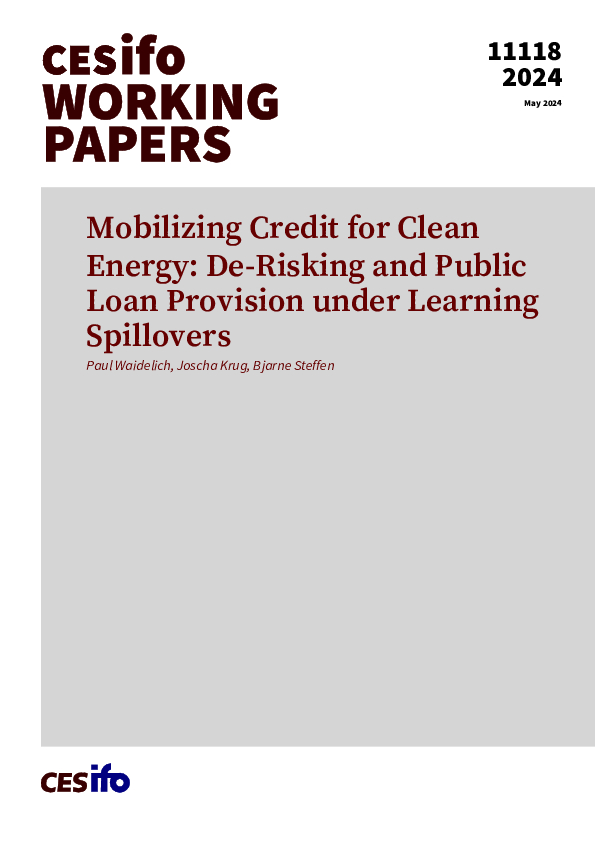Mobilizing Credit for Clean Energy: De-Risking and Public Loan Provision under Learning Spillovers
CESifo, Munich, 2024
CESifo Working Paper No. 11118

Policymakers regularly rely on public financial institutions and government offices to provide loans for clean energy projects. However, both the market failures that public loan provision addresses and its role in a policy strategy that also features instruments directly addressing environmental and innovation externalities remain unclear. Here, we develop a model of banks providing loans for clean energy projects that use a novel technology. This early-stage lending builds up banks’ financing experience, which spills over to peers and hence is undersupplied by the market. In addition to this cooperation problem, bankability requirements can result in a coordination failure whereby the banking sector remains stuck in an equilibrium with no loans for the novel technology even when a preferable equilibrium with loans exists. Public provision of early-stage loans is inferior to de-risking instruments in solving this cooperation problem because it crowds out private banks’ loan provision. However, public loan provision—ideally in combination with additional de-risking measures to support banks in internalizing learning spillovers—can more effectively resolve the coordination failure by pushing the banking sector to a better equilibrium.
Energy and Climate Economics